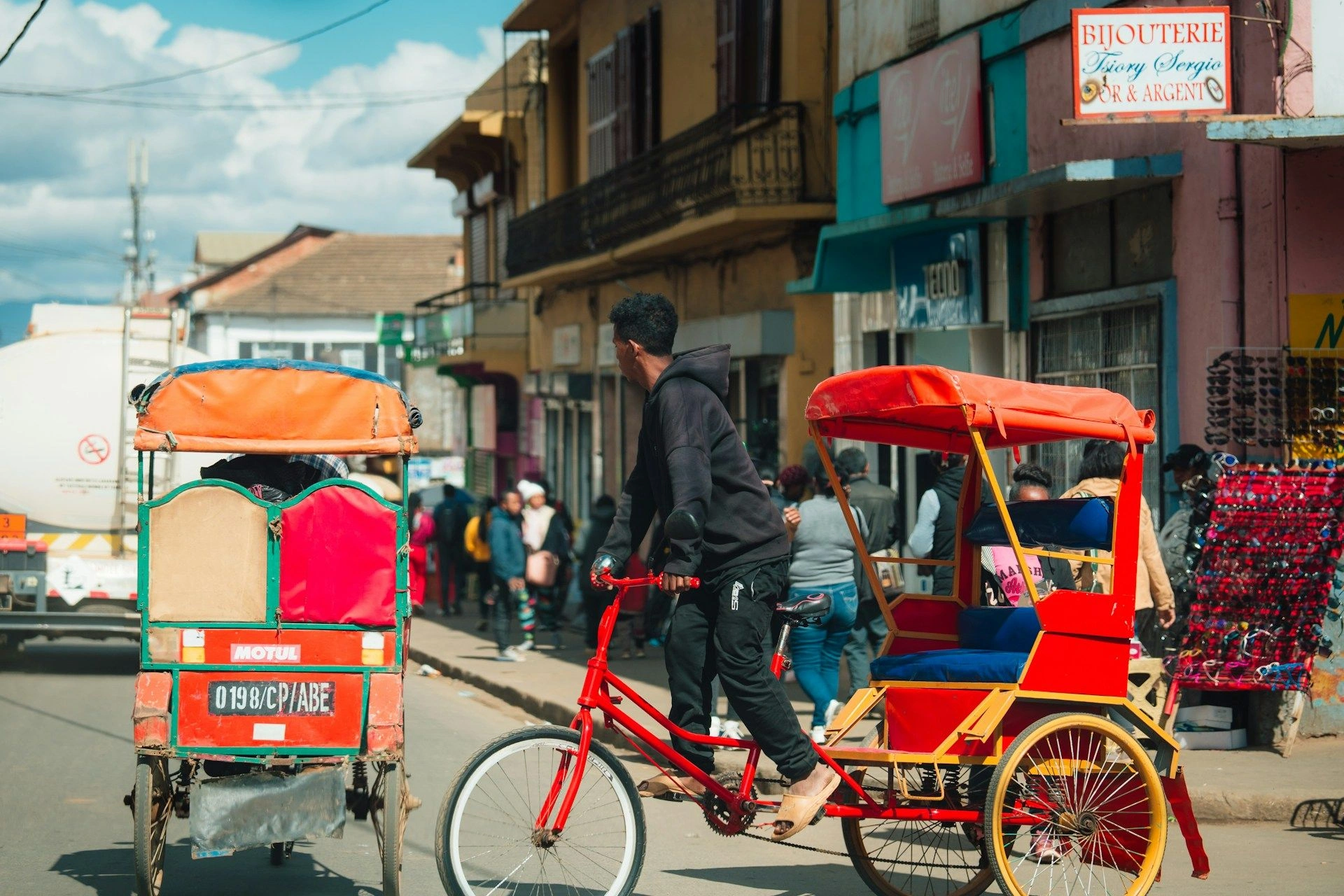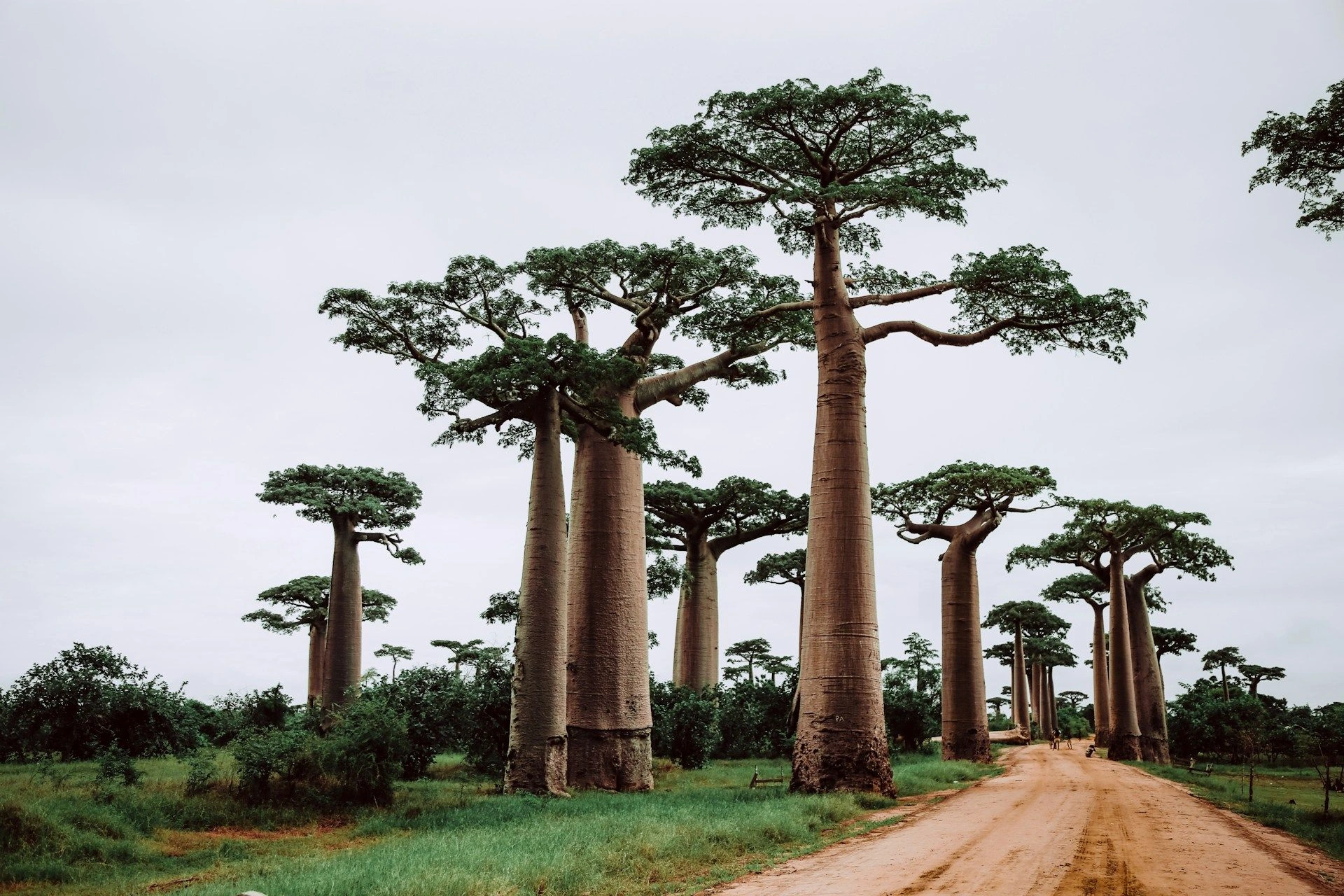Madagascar Investment Real Estate – Opportunities for BuyersIsland life with mountains, marketsand sea air

Popular
cities and regions in Madagascar
Best offers
in Madagascar
Benefits of investment in
Madagascar real estate
Exotic destination with unique appeal
Coastal and eco-tourism areas attract attention from lifestyle buyers and long-stay travelers.
Opportunities in boutique hospitality
Development potential exists for eco-lodges, guesthouses, and resort-style homes.
Natural beauty with long-term potential
Unspoiled landscapes add intrinsic value to well-located properties.
Exotic destination with unique appeal
Coastal and eco-tourism areas attract attention from lifestyle buyers and long-stay travelers.
Opportunities in boutique hospitality
Development potential exists for eco-lodges, guesthouses, and resort-style homes.
Natural beauty with long-term potential
Unspoiled landscapes add intrinsic value to well-located properties.

Useful articles
and recommendations from experts
Real Estate in Madagascar: Coastal Opportunities in an Emerging Island Market
Why Consider Property Investment in Madagascar
Madagascar, the world’s fourth-largest island, offers unique biodiversity, exotic landscapes, and a slowly liberalizing economy. While still considered a frontier market, it has growing appeal for niche investors, eco-tourism operators, and retirees seeking affordable beachfront living. The capital Antananarivo, coastal cities like Nosy Be, and emerging tourism zones such as Diego Suarez are seeing increased interest. However, strict ownership laws and legal complexity make it essential to understand local regulations before investing.
Types of Property and Permitted Uses
Madagascar offers a variety of real estate asset types, many of which are well-suited to tourism or lifestyle-oriented investments:
- Beachfront Villas and Resorts: Located in coastal hotspots such as Nosy Be, Île Sainte-Marie, and Diego Suarez. Often used for eco-lodges, dive resorts, or private homes for expats.
- Urban Housing and Apartments: Found in Antananarivo and regional cities; demand is growing for modern, secure housing due to a rising middle class.
- Agricultural and Rural Land: Often available at low cost, suitable for vanilla farming, reforestation, or sustainable development—but subject to strict regulations.
- Commercial Real Estate: Limited but expanding opportunities in retail centers and warehouse/logistics developments, especially near ports.
Zoning and land use regulations vary by municipality, and many rural or coastal lands lack formal titling. Investors are encouraged to verify zoning and land titles through the local land office (Domaines et Topographie).
Ownership and Legal Framework for Foreigners
Foreigners are not allowed to own land in Madagascar directly. However, there are legal mechanisms that allow structured access:
- Leasehold System: Foreigners can acquire long-term leases of up to 99 years on land through a government-approved leasehold contract (bail emphytéotique).
- Ownership via Local Company: A foreigner may form a company under Malagasy law with a majority local shareholder (or sometimes 100% foreign-owned for certain projects), which can then acquire land and property.
- Real Estate Structures: Foreigners may own buildings (constructed on leased land) and can register such ownership with the state cadastre.
- Tourism and Investment Zones: In designated zones, the state may allow more flexible structures for foreign development under investment codes.
All leases or ownership arrangements must be registered with the “Service des Domaines.” Due diligence is essential, particularly with rural land, where land disputes and unclear titling are common.
Property Prices and Market Overview
Madagascar remains one of the most affordable markets for coastal and rural property, although pricing varies widely depending on location and legal clarity:
| Location | Property Type | Average Price or Lease (USD) |
|---|---|---|
| Nosy Be | Beachfront Villa (leasehold) | $80,000 – $300,000 |
| Île Sainte-Marie | Land Lease (per hectare/year) | $500 – $1,000 |
| Antananarivo | Urban Apartment (100 m²) | $40,000 – $90,000 |
| Diego Suarez | Guesthouse or Eco-Lodge | $120,000 – $350,000 |
| Toamasina (port city) | Commercial Plot Lease | $1 – $3/m²/month |
Urban land prices have appreciated modestly over the past 5 years, while coastal zones like Nosy Be have seen faster growth due to tourism development.
Taxes and Transaction Costs
Madagascar offers relatively low transaction costs, but land taxes and regulatory fees can vary by region:
- Property Transfer Tax: 5% of the property value, paid by the buyer.
- Notary Fees: Usually 2%–3% of the sale value, required for registration.
- Registration Fees: Modest but necessary for valid leasehold or ownership registration (~0.5%–1%).
- Annual Land Tax: Varies by use; often $50–$300/year for residential use, higher for commercial land.
- Rental Income Tax: Flat rate of 20% on rental income; corporate entities may face different taxation depending on structure.
- VAT: 20% VAT applies to certain commercial real estate transactions, including new developments.
Madagascar has several double-taxation treaties (France, Mauritius, South Africa, etc.), which may reduce income tax burdens for foreign investors.
Rental Yields and Market Demand
The rental market is growing in both urban centers and tourist areas:
- Urban Rentals (Antananarivo): Gross yields of 6%–8% are common, particularly near embassies and commercial zones.
- Beachfront Holiday Rentals (Nosy Be, Sainte-Marie): Short-term yields up to 10%–12% in high season, with $80–$200/night rates.
- Long-term Expat Rentals: Corporate leases and NGO housing provide stable mid- to high-end demand.
Short-term rentals are common on platforms like Airbnb, though infrastructure limitations (power, roads, internet) may limit occupancy. Property managers are recommended for absentee landlords.
Investment Scenarios
- Eco-Lodge in Nosy Be: Lease 0.5 hectare beachfront land, build 5 bungalows for ~$200,000 total investment. Target nightly rate $120–$150, yielding ~10% gross annually.
- Urban Buy-to-Let in Antananarivo: Buy a $70,000 apartment in the Isoraka district, lease at $600/month to expat professionals (~8.5% gross yield).
- Retreat Center in Diego Suarez: Lease 2 hectares with panoramic views, build modular housing and wellness facilities targeting long-stay foreign visitors.
- Farm-to-Eco Project in East Madagascar: Lease 10 hectares near Mananjary, mix of vanilla cultivation and glamping units.
Best Locations for Real Estate Investment
- Nosy Be: Leading tourism hub, known for luxury lodges, scuba diving, and growing expat interest.
- Antananarivo: Capital city with rising middle-class housing demand and consistent rental market.
- Diego Suarez (Antsiranana): Northern city with tourism and port access, good potential for eco-tourism.
- Toamasina: Major port and industrial city, logistics opportunities and commercial leasing.
- Île Sainte-Marie: Smaller but scenic island popular with eco-tourists and mid-range resorts.
Infrastructure and Living Conditions
Madagascar is developing its infrastructure, but challenges remain, particularly in remote or rural regions:
- Transportation: Antananarivo and Nosy Be have international airports; roads vary in quality, especially during rainy seasons.
- Electricity and Water: Often unreliable in rural areas; generators and water tanks are common on coastal properties.
- Internet: Available in cities, limited in remote areas. Mobile data is widespread but slower than global standards.
- Healthcare: Basic in many areas; private clinics are available in major cities but not always internationally accredited.
- Security: Varies; coastal regions are relatively safe, but urban areas may require private security or gated communities.
Expats often live in clusters, especially in Nosy Be or Antananarivo, and self-contained compounds are common among foreign homeowners.
Legal Process and Due Diligence
- Letter of Intent: Optional, followed by lease or building rights agreement.
- Due Diligence: Includes verification of land title, zoning status, prior claims, and environmental checks.
- Notary and State Approval: Required for lease contracts over 9 years or building rights; must be registered with Service des Domaines.
- Use of Local Attorney: Strongly recommended; contracts must comply with civil law system and French legal legacy.
- Timeline: Transactions can take 1–3 months depending on location and document completeness.
All documents are in French or Malagasy. Translation and legal interpretation may be required for foreign investors unfamiliar with civil code structures.
Conclusion: Niche Market with High Potential and High Risk
Madagascar presents a rare opportunity for investors willing to navigate regulatory complexity and infrastructure gaps in exchange for affordable beachfront property, eco-development potential, and long-term upside. While outright land ownership is not permitted for foreigners, well-structured leases and local partnerships can offer secure and profitable arrangements. As tourism recovers and environmental retreats gain appeal, Madagascar is increasingly relevant to impact investors, eco-resort developers, and adventurous real estate entrepreneurs.





